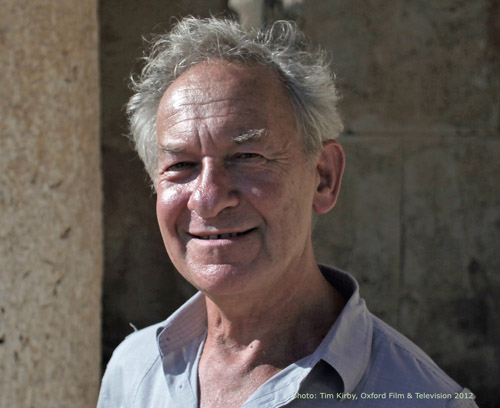The Story of the Jews on PBS
Category: Television and Streaming Simon Schama, award-winning author, filmmaker, and scholar, brings The Story of the Jews to PBS. He recently spoke with member of the Television Critics Association about this project, why he wanted to do it, and what viewers can expect.
Simon Schama, award-winning author, filmmaker, and scholar, brings The Story of the Jews to PBS. He recently spoke with member of the Television Critics Association about this project, why he wanted to do it, and what viewers can expect.
At the outset, Schama wanted “to dive into the Bible [and] to dive into the Jewish past.” He stressed to the journalists that one of the problems about making a show about the Jews in a “non‑Jewish world is that [perception] seems to be entirely about the Holocaust or entirely about the Israel/Palestinian conflict. And we don’t sidestep those things, but in keeping with the sense of my own life as a kid in the ’40s or ’50s, it’s more complicated than that. [Jewish history is] rich with exuberance [and] with vitality. Jewish comedy doesn’t come out of nothing. Jewish music doesn’t come out of nothing. The Talmud is, I promise you, full of jokes. And it’s certainly full of stories.”
Simon Schama says, “We are our story” which is what the emphasis of this film really is. He stated, “You can be Jewish and not be Orthodox. To be a religious Jew has been one of those debates from the very beginning, about which there is never any particular agreement. You can have an engagement with religion. As you know, in the United States there are Conservative Jews and Ultra‑Orthodox Jews. And there’s nothing in the religion requiring you to wear a funny hat and the kind of whole Williamsburg, Brooklyn gear at all. Ethnicity it’s not, because one thing we know about the Jews is we’re much more intermarried with other cultures than you could possibly imagine.
“One of the great [stories] for example – there’s an Ethiopian Jewess, a wonderful woman called Aviva Rahmani, who tells her own kind of Bible story, the Bible story of her own life crossing the Sudanese desert to try and get to Israel when she was 14 years old. She is ethnically Amharic. She’s ethnically Ethiopian. But Ethiopian Jewish culture is absolutely Jewish culture. There’s something like nearly quarter of a million Jews in Israel now who are from tropical African or South Asian origin. You would say they’re as Indian as anybody else, but they’re also as Jewish as any other Jews.”
Schama brings to the small screen a story that has played out over thousands of years. “The very important thing I want to say to you and, I hope, will emerge from the series, [is] Jews have never, ever, ever wished to be separate, unless they were forced to be. I’m not saying that the Ultra‑Orthodox in Jerusalem or some other places dress the way they dress, live in the areas where they want to live because they mostly live within each other, but they have always constituted a tiny minority of observant Jews, never mind nonobservant Jews. The Jews did not invent the ghetto. The state of Venice invented the ghetto in 1516. As the ghetto was being invented, there were other cities in Italy, like Ferrara and Mantua, where Jews did not have to wear distinguishing signs of dress. The Islamic world was the first to insist that Jews, and Christians, for that matter, wear signs of conspicuous dress.
“So in some sense a deep and powerful argument has gone on inside the Jewish tradition. Do we feel more Jewish when we’re most immersed in everybody else’s culture or less Jewish? And that’s an argument which has profound implications for the Middle East. Can we feel deeply Jewish by being part of the neighborhood, or do we need to feel mostly Jewish by being separate from the rest of the neighborhood? And that, incidentally – the last, but not unimportant, point – because there was a reason why I made this series – one of the most powerful and desperately important issues facing the world, not just Jews now, after the destruction of the planet and the gross inequalities between rich and poor, is how do people of different beliefs and customs coexist in the same country?”
The Story of the Jews premiers Tuesday, March 25, 2014 on PBS. The second and final episode premiers Tuesday, April 1, 2014.
About the Author
Francine Brokaw has been covering all aspects of the entertainment business for 20 years. She also writes about technology and has been a travel writer for the past 12 years. She has been published in national and international newspapers and magazines as well as internet websites. She has written her own book, Beyond the Red Carpet The World of Entertainment Journalists, from Sourced Media Books.
Follow her on Twitter
Like her on Facebook
